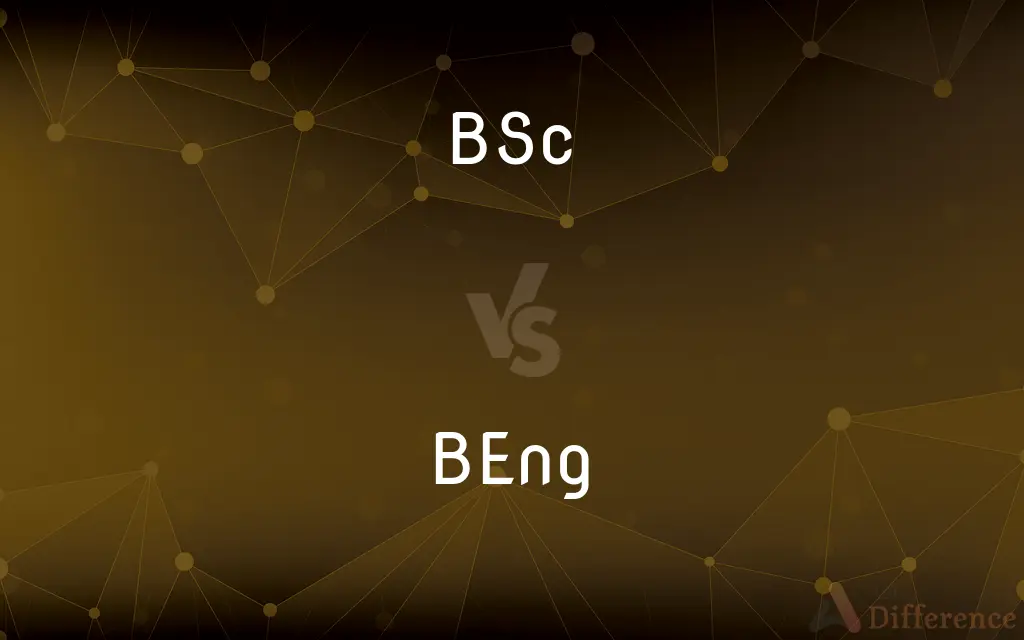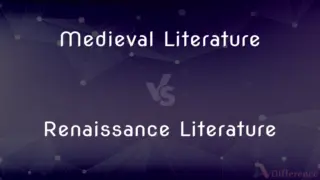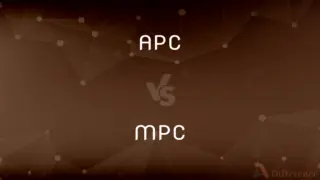BSc vs. BEng — What's the Difference?
Edited by Tayyaba Rehman — By Fiza Rafique — Published on December 28, 2023
BSc stands for Bachelor of Science, a degree in various scientific disciplines. BEng denotes Bachelor of Engineering, focused on engineering disciplines. Both are undergraduate degrees but cater to different academic fields.

Difference Between BSc and BEng
Table of Contents
ADVERTISEMENT
Key Differences
BSc and BEng are prominent undergraduate degree designations, yet they serve distinct academic and professional sectors. BSc, or Bachelor of Science, is an undergraduate degree awarded to students who complete a course of study in a field of science, such as biology, chemistry, physics, or mathematics. While BSc programs emphasize a broad understanding of the chosen discipline, they often allow students to explore other related fields or even entirely different subjects. On the other hand, BSc can also encompass non-scientific fields in some institutions, reflecting the breadth of studies under its umbrella.
In contrast, BEng stands for Bachelor of Engineering. This degree is specifically for students pursuing studies in engineering disciplines, such as civil, mechanical, electrical, or software engineering. Unlike BSc programs, BEng courses are more specialized, focusing on practical and theoretical aspects of engineering. Students enrolled in a BEng program will engage with in-depth technical subjects, projects, and hands-on experiences tailored to their specific branch of engineering.
The career paths following a BSc or BEng also vary. BSc graduates might venture into research, teaching, or specialized roles in their discipline, or they might branch out into diverse sectors, including business or arts, depending on their interests and additional qualifications. BEng graduates, however, typically move into engineering roles, consulting, or project management, predominantly within their field of study.
Selecting between BSc and BEng largely depends on a student's interest and career aspirations. If someone is passionate about a specific science and enjoys broad academic exploration, a BSc might be the ideal choice. For those driven by designing, building, or optimizing systems and structures, a BEng would be more fitting.
Comparison Chart
Primary Focus
General science disciplines
Engineering disciplines
ADVERTISEMENT
Flexibility
Often broader in curriculum
More specialized and focused
Typical Duration
3-4 years
3-5 years
Practical Experience
Depends on the program
Often includes practical projects or internships
Career Pathways
Diverse; research, teaching, various industries
Engineering roles, technical consulting, project management
Compare with Definitions
BSc
Represents a broad study in a specific scientific area.
After his BSc in Physics, John became a high school teacher.
BEng
An undergraduate degree specifically in engineering.
Mike pursued a BEng in Mechanical Engineering.
BSc
Might include lab work, depending on the major.
During her BSc studies, Emily spent hours in the chemistry lab.
BEng
Focuses on both the theoretical and practical aspects of engineering.
Jennifer's BEng program had numerous hands-on projects.
BSc
An undergraduate degree in science disciplines.
Sarah earned her BSc in Biology from a prestigious university.
BEng
Offered in various disciplines, from civil to software engineering.
After his BEng in Civil Engineering, Alan joined a construction firm.
BSc
Can encompass both pure and applied sciences.
Lisa's BSc in Environmental Science led her to conservation work.
BEng
Typically integrates practical experience or internships.
Part of Karen's BEng coursework involved an internship at a tech company.
BSc
Often awarded after a 3-4 year course of study.
Completing his BSc in Mathematics was a proud moment for Mark.
BEng
Prepares students for specialized roles in engineering fields.
With a BEng in Electrical Engineering, Robert became a circuit designer.
Common Curiosities
What disciplines can fall under BEng?
BEng can include civil, mechanical, electrical, software, and various other engineering disciplines.
Is practical experience essential in a BEng program?
Most BEng programs integrate practical projects, workshops, or internships for hands-on experience.
Which degree is more specialized: BSc or BEng?
BEng is generally more specialized, focusing on specific engineering disciplines.
What does BSc stand for?
BSc stands for Bachelor of Science.
How different are the course structures of BSc and BEng?
BSc offers broader scientific studies, while BEng focuses on specialized engineering subjects.
Which degree is better for research: BSc or BEng?
For pure scientific research, a BSc might be more suitable, while BEng can lead to engineering R&D roles.
Are there postgraduate options after a BSc or BEng?
Yes, both degrees can lead to master's or doctoral studies in their respective fields.
Can a BSc be in a non-science subject?
While traditionally for sciences, some institutions offer BSc degrees in non-scientific subjects.
Which is longer, a BSc or a BEng program?
Both can range from 3-5 years, but BEng programs might be longer due to specialized courses or internships.
Can a BSc graduate work in engineering?
While possible, BSc graduates might need additional qualifications or training for engineering roles.
Can I switch from a BSc to a BEng program?
It depends on the institution, but some universities may allow transfers with credit considerations.
Can I pursue a BEng if I have a diploma in engineering?
Many institutions allow diploma holders to enter BEng programs, possibly with credit transfers.
Do BEng graduates earn more than BSc graduates?
Income varies by region, specialization, and job role, but BEng roles can often have higher starting salaries.
Share Your Discovery

Previous Comparison
Medieval Literature vs. Renaissance Literature
Next Comparison
APC vs. MPCAuthor Spotlight
Written by
Fiza RafiqueFiza Rafique is a skilled content writer at AskDifference.com, where she meticulously refines and enhances written pieces. Drawing from her vast editorial expertise, Fiza ensures clarity, accuracy, and precision in every article. Passionate about language, she continually seeks to elevate the quality of content for readers worldwide.
Edited by
Tayyaba RehmanTayyaba Rehman is a distinguished writer, currently serving as a primary contributor to askdifference.com. As a researcher in semantics and etymology, Tayyaba's passion for the complexity of languages and their distinctions has found a perfect home on the platform. Tayyaba delves into the intricacies of language, distinguishing between commonly confused words and phrases, thereby providing clarity for readers worldwide.













































